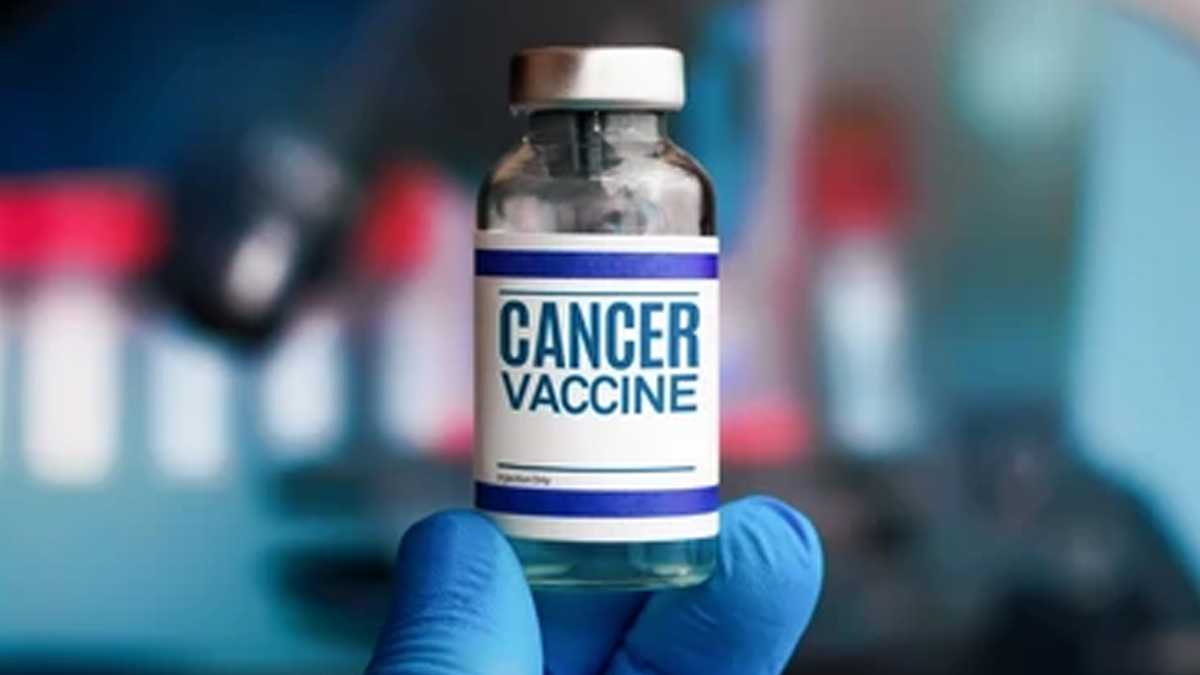
Have you ever imagined what cancer treatment would be like if it were made just for you? Among the most promising advances in cancer treatment is the development of personalised cancer vaccinations. It employs the unique genetic fingerprint of a patient to develop custom treatments. These vaccines have the potential to revolutionise oncology by offering more effective and specific treatments, reducing side effects, and enhancing patient outcomes.
Table of Content:-
We spoke to Dr Sumanth Kumar Mallupattu, Consultant - Medical Oncology, CARE Hospitals, Banjara Hills, Hyderabad, who explained the role of personalised cancer vaccines in treatment.
Comprehending Personalised Cancer Vaccinations

Unlike vaccinations in the past, which are designed to prevent diseases, targeted cancer vaccinations are therapeutic. They harness the body’s protected framework to perceive and assault disease cells. "The process includes sequencing a patient’s growth DNA to distinguish explicit transformations, which are then used to develop a vaccination tailored to their growth profile. This targeted method ensures the secured framework affects only the cancerous cells, limiting the collateral damage commonly encountered with traditional methods," explained Dr Mallupattu.
One of the most important breakthroughs in this area is the progress of neoantigen-based vaccinations. Neoantigens are new protein markers on cancer cells due to genetic mutations. By identifying these neoantigens and integrating them into a personalised vaccination, oncologists can stimulate a protected response specifically organised against the growth, enhancing treatment efficacy.
According to a 2024 study, personalised tumour neoantigen vaccines have advanced significantly in clinical trials, demonstrating encouraging outcomes in various cancer treatments. Studies indicate that more than 60% of melanoma patients who received these personalised vaccines remained free of recurrence or showed no progression two years after treatment.
Also Read: Why Two People With The Same Cancer May Need Completely Different Treatments
Why Personalised Cancer Vaccinations Are a Game Changer

Precision Targeting for Better Potency
Traditional disease treatment often follows a one-size-fits-all approach, which can fail to address the needs of all patients. Personalised cancer vaccinations, on the other hand, are designed based on a person's genetic makeup, ensuring a more precise and effective treatment. This targeted approach enhances the probability of success, reducing the need for trial-and-error treatment protocols.
Reduced Side Effects
Conventional cancer remedies, such as chemotherapy and radiation, can lead to serious complications because they harm both healthy and cancerous cells indiscriminately. "Personalised vaccines, on the other hand, target only the cancer cells, reducing undesirable responses, such as exhaustion, nausea, and immune suppression. Reduced side effects can improve patients' quality of life during a challenging period," added Dr Mallupattu.
Enhanced Immune Memory
These tailored inoculations not only fight current tumours but also train the body to recall cancer-specific markers, potentially preventing recurrences from forming. This long-term defence might revolutionise the way we treat cancer, turning it into a chronic but manageable disease instead of an inevitable sentence.
Potential to Treat a Variety of Cancers
"While personalised anti-cancer vaccines are still in the clinic, they have shown promise against several types of diseases, including melanoma, lung cancer, and breast cancer. As the techniques mature, these immunisations might be used against an even wider range of malignancies," said Dr Mallupattu.
Also Read: India’s Cancer Crisis: 3 in 5 Patients Die Post-Diagnosis—Why Are Women at Higher Risk?
Challenges and Future Prospects
Despite their immense potential, several obstacles must be overcome before customised anti-cancer immunisations become widely accessible.

High Costs and Inequitable Access
Developing a personalised vaccine requires advanced genomic sequencing and complex bioinformatics analyses, and thus the process is costly. "Ensuring affordability and availability to all patients regardless of socioeconomic status is a critical conundrum," highlighted Dr Mallupattu.
A Time-Consuming Development Endeavor
In contrast to off-the-shelf therapies, personalised vaccines take weeks or even months of laborious development. For patients with rapidly advancing cancers, such a delay might represent a fatal barrier. Researchers are working to simplify production processes to bring these vaccines to the public sooner.
Regulatory and Clinical Barriers
As with any new medical advancement, custom cancer immunisations involve strict clinical testing and regulatory approval processes. Though preliminary results show promise, various studies are required to prove their efficacy and safety.
The Path Forward
"The future of personalised anticancer vaccinations looks very promising. With advances in artificial intelligence, machine learning, and genomic sequencing, the development of such immunisations is expected to become more rapid, affordable, and accessible to many," added Dr Mallupattu.
Major pharmaceutical companies and research organisations are investing heavily in this field, which indicates an increasing move towards more personalised and targeted methods of treating cancer. Collaborative efforts between healthcare providers, policymakers, and scientists will be crucial in delivering these life-saving drugs to more patients globally.
Bottomline
Dr Mallupattu concluded, "New cancer vaccines revolutionise the management of cancer. They attack cancer by employing the body's natural defence and immune system and are designed to individualise each patient's genetic characteristics. This mechanism offers hope for cancer patients everywhere and may result in a cure someday. Although there remains much to do, research currently is moving in the direction that will make cancer a manageable or even curable disease."
[Disclaimer: This article contains information provided by an expert and is for informational purposes only. Hence, we advise you to consult your professional if you are dealing with any health issue to avoid complications.]
Also watch this video
How we keep this article up to date:
We work with experts and keep a close eye on the latest in health and wellness. Whenever there is a new research or helpful information, we update our articles with accurate and useful advice.
Current Version